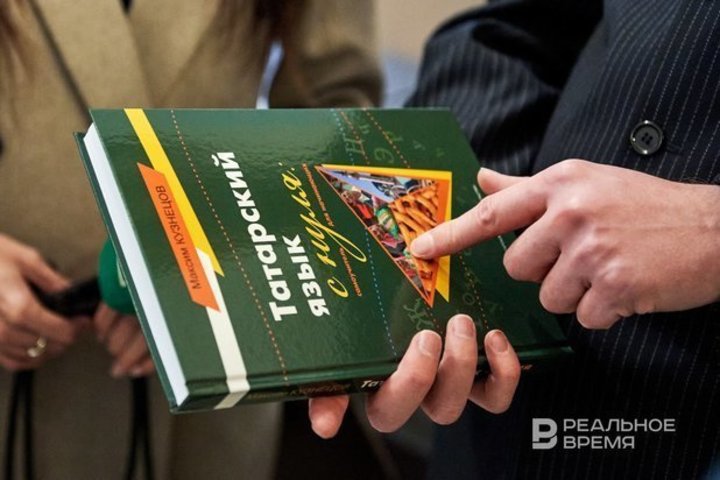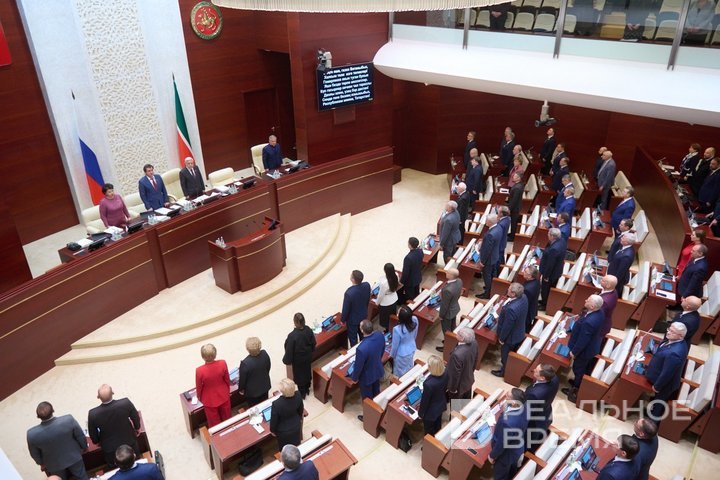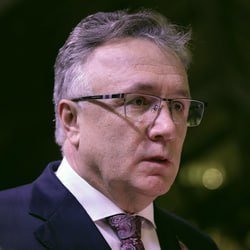Tatarstan deputies secured the preservation of ‘native language’ term from ministry of education
According to Ilshat Aminov, such changes indicate that the federal centre is listening to the republic

Deputies of the State Duma from Tatarstan succeeded in preserving the name of the subject “Native Language”. The changes are minor — previously, it was called “Native Language and/or State Language of the Republic of the Russian Federation,” but now it will be named “Native Language (Language of the People of the Russian Federation) and/or State Language of the Republic of the Russian Federation.” According to Realnoe Vremya, this information has been receivedtoday from the Federal Institute of Native Languages at the Ministry of Education and Science of Tatarstan. More details on the situation can be found in the publication’s report.
Making decisions at the federal level without consulting the region is a dangerous trend
The issue of renaming arose following an initiative by Elena Yampolskaya, a former deputy from Tatarstan and now an advisor to the Russian president on culture. She previously stated that the interpretation of “native language” is contrasted with Russian, which could lead to disagreements. Yampolskaya’s statement sparked a wide and intense response among deputies from Tatarstan. The discussion became particularly active during the final session of the State Council this year.

At that time, Ilshat Aminov, deputy of the State Council of the Republic of Tatarstan, chairman of the Union of Journalists of the Republic of Tatarstan, and general director of the TV channel Novy Vek, stated that a dangerous trend is emerging, characterised by initiatives from federal authorities without involving the interested regions — without their consultation.
“The draft amendments to the federal state educational standard and the federal law on the languages of the peoples of the Russian Federation propose replacing the concept of “native language” with “language of the peoples of the Russian Federation.” This terminology does not correspond to the country’s basic education law. Today, more than 155 languages are used in Russia. If we prohibit people from considering the language of their people as native, we violate Article 68 of the Constitution of the Russian Federation, which guarantees all peoples the right to preserve their native language. Ms Yampolskaya is baselessly imposing a contrast between Russian and other languages. We, without a doubt, consider Russian, Tatar, and other peoples’ languages as native languages. There is no obstacle to retaining the term “native languages” in educational standards. There is no contradiction here, and it worries no one,” Aminov emphasised.
His indignation was echoed by a colleague — State Council deputy Kamil Nugaev, who stated that “Yampolskaya has offended him personally as a Tatar.” Moreover, residents of Tatarstan are currently participating in the Special Military Operation, and during the Great Patriotic War, the republic ranked fourth in the number of Heroes of the Soviet Union.
At the same session, Tatarstan’s Minister of Education and Science, Ilsur Khadiullin, revealed that the republican ministry had sent a letter to the Ministry of Education requesting the preservation of the curriculum for the republic’s national schools as a whole.
“The issue of making new decisions at the federal level has greatly concerned the deputies of the State Council. When we receive this document, we will review it carefully. Multilingual Russia is our wealth. These matters require attention. The republic will still have its say on this issue,” summarised the chairman of the parliament, Farid Mukhametshin.
Yampolskaya herself also commented today on the debate that arose in the State Council of Tatarstan:
“They ask if I am hurt by the insults directed at me during the well-known public outburst and its subsequent echo. Am I offended? No, guys. Who was offended? They offended themselves. To be offended, you need at least to take a person seriously. My serious attitude does not extend to those who fight against the Russian language (while using only the Russian language), manipulate facts, distort, slander, shamelessly lie, listen to lies, and pay for lies; who contemptuously call a mother raising an adopted child ‘a late mother.’ I am not offended. Broadly disappointed, yes.”
“We were not demanding anything extraordinary; we were demanding the enforcement of the Constitution of Russia”
A few days later, it became known that Tatarstan managed to preserve the name of the subject “Native Language.” As reported to Realnoe Vremya, this information came on 21 July from the Federal Institute of Native Languages at the Ministry of Education and Science of Татарстан.

According to him, the most important thing is that the term “native language” was preserved.
“The term is tied to an entire set of laws that are currently in effect, as well as textbooks and teaching materials. So, when some people say, ‘What difference does it make which language you study?’ — that’s simply not true. A lot depends on this term. It’s an entire education system that would have been disrupted. We understand that terminology matters a great deal because once it’s no longer called the ‘native language,’ it’s a completely different story. It offers fewer guarantees, and the future becomes uncertain. Now, at least, it’s clear that the system of teaching the native languages of the peoples will be preserved,” the deputy said.
The resolution of this issue is relevant not only for Tatarstan but also for other national republics. Among them are Adygea, Altai, Bashkortostan, Buryatia, Dagestan, Ingushetia, Kabardino-Balkaria, Kalmykia, Karachay-Cherkessia, Karelia, Komi, Crimea, Mari El, Mordovia, Sakha (Yakutia), North Ossetia — Alania, Tuva, Udmurtia, Khakassia, Chechen Republic, and Chuvash Republic.